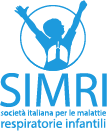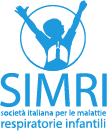Recent clinical studies have highlighted the efficacy and safety of the CFTR modulator combination vanzacaftor-tezacaftor-deutivacaftor (VTD), a new therapeutic option that represents a significant advancement in the management of cystic fibrosis (CF), a complex genetic disorder that affects the respiratory, digestive, and other vital systems.
RIDGELINE Trial: Effective CFTR Modulation and Enhanced Safety in Pediatric Patients
Cystic fibrosis causes the accumulation of viscous mucus in the airways, leading to chronic infections, lung damage, and respiratory difficulties, as well as digestive problems due to pancreatic insufficiency. Although significant progress has been made in recent years in CF treatment, new studies and therapies continue to aim at improving the quality of life for patients, especially children, who are the most vulnerable. One of the most significant studies in this area is the RIDGELINE trial (VX21-121-105), a phase 3 single-arm study that examined the efficacy of the VTD combination in children aged 6 to 11 years with cystic fibrosis. In this study, 78 patients already receiving elexacaftor-tezacaftor-ivacaftor (ETI), another combination of CFTR modulators, were treated with VTD for 24 weeks. The results of the study showed that the VTD combination was well tolerated by children and led to significant improvements in CFTR function. In particular, the treatment reduced sweat chloride levels, a key diagnostic parameter for cystic fibrosis. More than 90% of the patients achieved values below the diagnostic threshold of 60 mmol/L, and more than half of the patients reached values considered normal. This suggests that the VTD combination is effective in restoring CFTR function, which can lead to significant improvements in respiratory. The data was also reassuring from a safety perspective: the adverse events reported were mostly mild or moderate, including cough, headache, and respiratory infections, and no significant treatment interruptions were observed. These results could pave the way for more effective early treatment in managing cystic fibrosis in children, potentially reducing disease progression and improving patients’ quality of life. In parallel, the SKYLINE trials (VX20-121-102 and VX20-121-103), which evaluated the efficacy of VTD compared to ETI in adolescent and adult patients with cystic fibrosis (aged 12 and older), confirmed that the new combination is not inferior to ETI in terms of improvements in lung function, measured by improvements in FEV₁ (forced expiratory volume in 1 second).
SKYLINE Trials: VTD’s Once-Daily Convenience for Adolescents and Adults
These phase 3 randomized, active-controlled trials also showed that VTD is safe and well tolerated, with a side effect profile similar to that of ETI, including mild and moderate events such as headaches, abdominal pain, and respiratory infections. However, a distinctive aspect of VTD is its administration: the treatment requires a single daily dose, while ETI requires two daily doses, making VTD more convenient, particularly for pediatric and adolescent patients who may have difficulty following a complex therapeutic regimen. This simplification could promote better long-term treatment adherence, reducing the likelihood of treatment interruptions and contributing to more effective disease management. Thanks to the positive results from both studies, the FDA approved VTD in December 2024 for the treatment of cystic fibrosis in patients aged 6 years and older with at least one responsive CFTR mutation. The drug is now marketed under the brand name Alyftrek, and its approval represents an important step forward in the treatment of cystic fibrosis, enhancing the therapeutic options available for both pediatric and adult patients.
On April 25, 2025, the Committee for Medicinal Products for Human Use (CHMP) of the European Medicines Agency (EMA) issued a positive opinion on the marketing authorization of the new CFTR modulator combination vanzacaftor-tezacaftor-deutivacaftor, under the name Alyftrek, for the treatment of individuals with cystic fibrosis aged over 6 years with at least one non-class I mutation. In summary, the combination of vanzacaftor-tezacaftor-deutivacaftor represents a new therapeutic option that offers effective CFTR modulation, with a favorable safety profile and the convenience of once-daily administration. The data from the RIDGELINE and SKYLINE studies confirm that VTD is effective not only in children but also in adolescents and adults, and it is particularly promising for early treatment and management of cystic fibrosis. These studies reinforce the importance of early diagnosis and timely treatment in cystic fibrosis to improve prognosis and the quality of life for patients, progressively reducing the burden of the disease.
BIBLIOGRAFY:
- Hoppe JE, Kasi AS, Pittman JE, Jensen R, Thia LP, Robinson P, Tirakitsoontorn P, Ramsey B, Mall MA, Taylor-Cousar JL, McKone EF, Tullis E, Salinas DB, Zhu J, Chen YC, Rodriguez-Romero V, Sosnay PR, Davies G; VX21-121-105 Study Group. Vanzacaftor-tezacaftor-deutivacaftor for children aged 6-11 years with cystic fibrosis (RIDGELINE Trial VX21-121-105): an analysis from a single-arm, phase 3 trial. Lancet Respir Med. 2025 Mar;13(3):244-255. doi: 10.1016/S2213-2600(24)00407-7. Epub 2025 Jan 2. Erratum in: Lancet Respir Med. 2025 Mar;13(3):e19. doi: 10.1016/S2213-2600(25)00010-4. PMID: 39756425.
- Keating C, Yonker LM, Vermeulen F, Prais D, Linnemann RW, Trimble A, Kotsimbos T, Mermis J, Braun AT, O’Carroll M, Sutharsan S, Ramsey B, Mall MA, Taylor-Cousar JL, McKone EF, Tullis E, Floreth T, Michelson P, Sosnay PR, Nair N, Zahigian R, Martin H, Ahluwalia N, Lam A, Horsley A; VX20-121-102 Study Group; VX20-121-103 Study Group. Vanzacaftor-tezacaftor-deutivacaftor versus elexacaftor-tezacaftor-ivacaftor in individuals with cystic fibrosis aged 12 years and older (SKYLINE Trials VX20-121-102 and VX20-121-103): results from two randomised, active-controlled, phase 3 trials. Lancet Respir Med. 2025 Mar;13(3):256-271. doi: 10.1016/S2213-2600(24)00411-9. Epub 2025 Jan 2. Erratum in: Lancet Respir Med. 2025 Mar;13(3):e19. doi: 10.1016/S2213-2600(25)00011-6. PMID: 39756424.
No metadata found.



